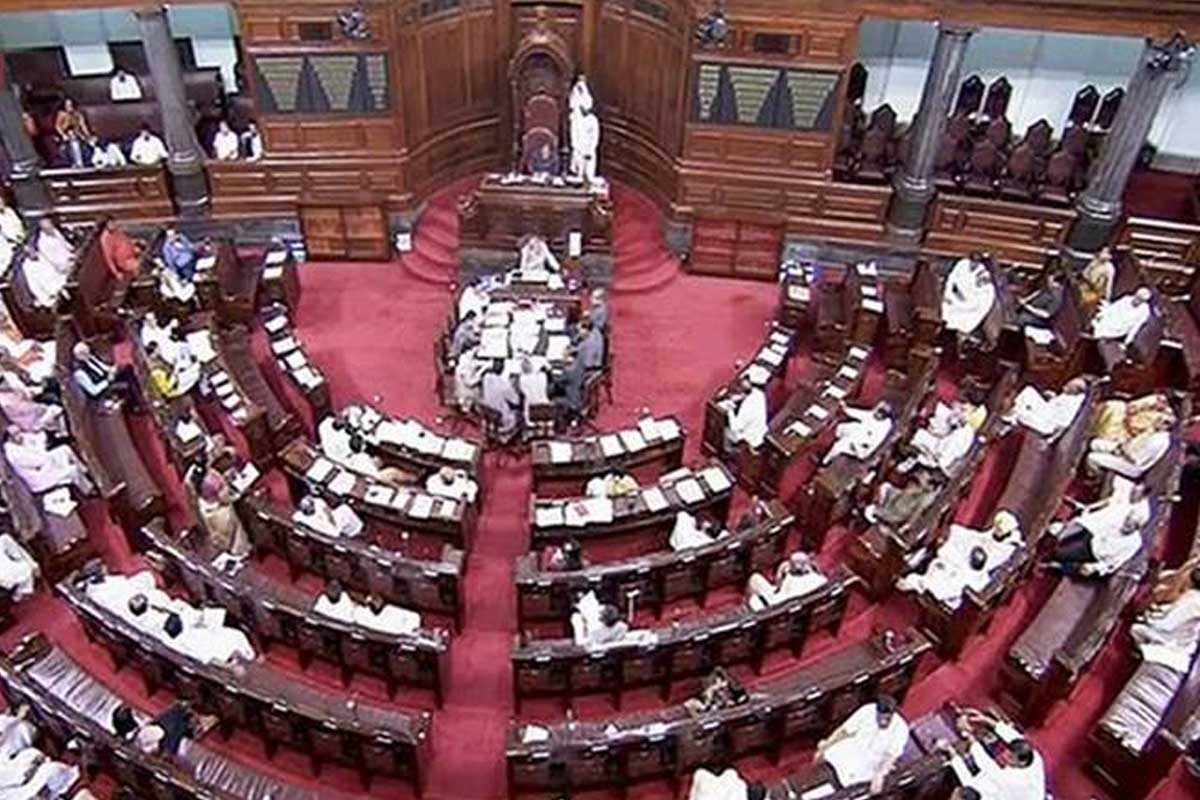TMC suspends ex-MP Shantanu Sen, ex-MLA Arabul from party
Trinamul Congress has suspended two leaders today for their anti-party activities.
Minority Affairs Minister Mukhtar Abbas Naqvi said the political process had started with the Panchayati elections. The extension of Central laws gave reservation in jobs to backward classes.

The Jammu and Kashmir Budget debate in the Rajya Sabha today witnessed an intense face-off between sentiments and facts, with the Opposition closely questioning the Government on its achievements and promises.
The House took up the discussion after Finance Minister Nirmala Sitharaman presented the Jammu and Kashmir Appropriation Bill, 2022, and the Jammu and Kashmir Appropriation (No 2) Bill, 2022, already passed by the Lok Sabha. She will reply to the debate tomorrow.
Advertisement
Initiating the discussion, Vivek Tankha (Congress) said for the last six years the Jammu and Kashmir budget had to be discussed in Delhi as it was either under President’s or Governor’s rule. Kashmir was bigger than Article 370. Allocations for education, power, and public health engineering had declined because the local population had no role in fixing priorities.
Advertisement
Dal lake was full of weeds, he said. How will the FDI come when the common people in tourist services were suffering, 4G connectivity was limited to some areas, and apple trade was taken over by supplies from neighbouring countries. Kashmiri Pandits’ cause should not be forgotten just because they did not agitate on the streets.
Responding to him, Anil Jain (BJP) said his party was committed to the abrogation of Article 370 since it was created. The 2019 Reorganisation Act for Jammu and Kashmir had made 890 Central laws applicable to people there, and thousands of projects were completed because of the extension of finance laws. The Panchayati raj elections had introduced a 3-tier Panchayati system at the local level.
Sentiments alone could not solve problems, he said. The Modi Government had initiated the provision of two AIIMS, seven medical colleges, two cancer institutes, 15 nursing institutions, and 600 additional MBBS seats. Now every day 20.68 kms of the road was added, as compared to 6.5 kms earlier. GST and stamp duty collections had increased, showing the economy was reviving.
Infiltration and ceasefire violations were down, he said. Those fond of lighting candles should see the Kashmir Files movie and give comments, Jain said.
Raising specific queries, Jairam Ramesh (Congress) said the UT’s Rs 1.42 lakh crore budget for the coming financial year primarily rested on revenue receipts of Rs 1 lakh crore, the bulk of it from the sale of State PSUs. But most of them were sick, he said.
Ramesh asked if the Government could call taking of loans from the Centre as raising of additional resources by the UT, and how the Government believed the UT’s GST receipts would double in one year. What was the Government’s proposal about the land bank of the State Industrial Development Corporation, he said?
Tourism Minister G Kishan Reddy said this month saw 322 tourist flights to Jammu and 512 flights to Srinagar. There were no hotel rooms available in Srinagar for the next few months. Could this be imagined earlier, he asked. Thousands of Government vacancies were being filled up and security battalions of local men and women were being raised. Central Ministers were visiting the UT and staying there long enough to listen to people’s grievances, Reddy said.
Minority Affairs Minister Mukhtar Abbas Naqvi said the political process had started with the Panchayati elections. The extension of Central laws gave reservation in jobs to backward classes.
Nadimul Haque (Trinamul Congress) said the budget was not merely income and expenditure. The promise of restoring the status of full State for Jammu and Kashmir was not fulfilled. Revenue expenditure accounted for 71 percent and capital expenditure only 33 percent of the UT budget, he said. The elected Panchayati leaders lived in camps because of threats to their safety.
Priyanka Chaturvedi (Shiv Sena) asked what was provided for Kashmiri Pandits in the budget, while Fouzia Khan (NCP) said the former State had a 15 percent unemployment rate now.
Advertisement